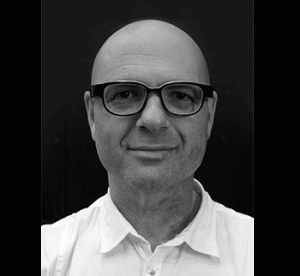The circus might be coming to town, but don’t expect entertainment under the big top when Australia’s CIRCA troupe takes over Toronto’s Bluma Appel Theatre from May 3 to 7.
That’s because CIRCA’s latest production, The Return, directed by the company’s artistic director, Yaron Lifschitz, explores the refugee crisis and what it’s like to live without a home.
The Return blends circus and opera, incorporating music from Claudio Monteverdi’s Il Ritorno d’Ulisse in Patria, which is loosely based on The Odyssey. The show is also inspired, in part, by the writing of Primo Levi, an Italian-Jewish writer and Holocaust survivor.
“Primo Levi is a very strong influence. He’s kind of a godfather of the work,” says Lifschitz over the phone from Australia, noting how Levi’s descriptions of displacement and returning home to the Russian steppe after surviving Auschwitz are particularly important to the show.
READ: PHOTOGRAPHER TRAINS LENS ON WOMEN AT THE BIMAH
Lifschitz explains that circus is about human bodies at their extreme, which makes this art form an appropriate one, as The Return explores intense emotions and concepts. Yet, Lifschitz knows that’s not always what audiences expect when going to the circus.
“In circus, people expect tricks. They want entertainment and this is not inherently a super entertaining subject matter. If you watch a sad piece, or a kind of moving piece of dance or theatre, it kind of makes sense,” he says.
“With circus, people are like, ‘hang on, where are the clowns? Where are the animals?’ And that still sort of carries over. It’s a challenging piece.”

The Return is non-verbal; the only sounds come from the singers and musical ensemble. They repeat four songs from Monteverdi’s opera in various iterations, in a score that also features German and Yiddish folk songs.
“You get almost kind of an obsessive, repetitive texture of needing, wanting and striving for, which I think really seeps into the dramaturgy of the show,” describes Lifschitz.
That desperation rings true today, amidst the current refugee crisis and at a moment when the world feels a little off kilter. “In tricky times, there’s often a tendency to want escapism and entertainment, and while the show is entertaining, it also aims to be moving and engaging,” says Lifschitz.
The Return comes to Toronto as part of the Canadian Stage theatre company’s Spotlight Australia Festival, which highlights work from down under.
While the show just came from a run at a circus venue in Montreal, Lifschitz is looking forward to bringing it to a broader audience in a venue not specifically designed for this artistic medium. And while it might not be filled with light-hearted tricks, Lifschitz stresses that it’s still captivating.
“Circus operates under the injunction of thou shalt not bore,” he says. “And not being boring is incredibly important to us. And so even though this work is kind of hard and uncompromising, it’s not boring.”
